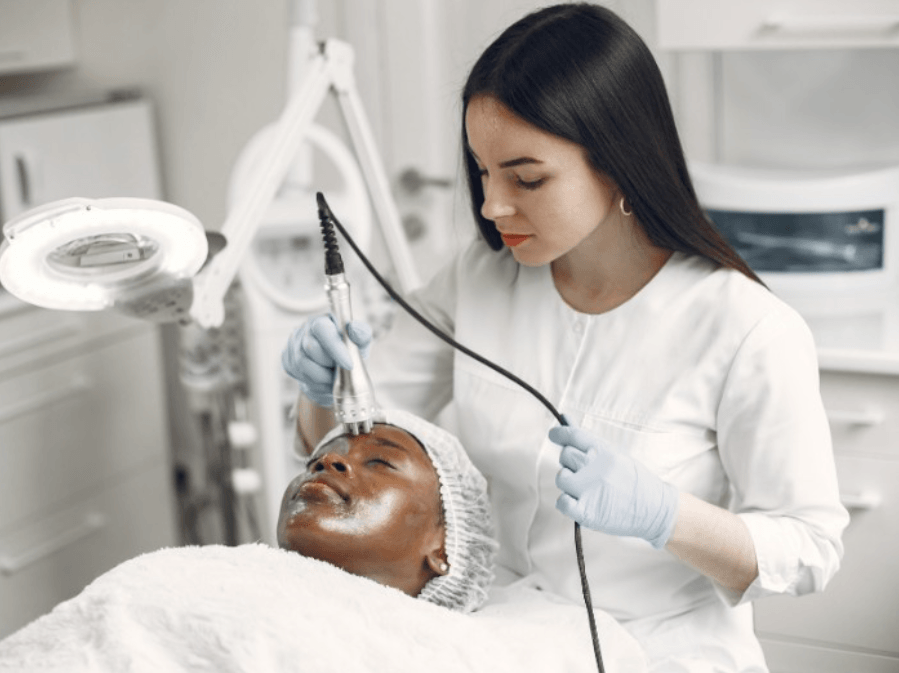Dermatology Overview
Dermatology is the branch of medicine that deals with the skin, nails, and hair. It is a relatively new field, only gaining recognition as a medical specialty in the 19th century. However, nowadays, dermatologists play a vital role in keeping patients healthy.
Skin, nails, and hair can be early indicators of underlying health issues. That's why it's essential to have regular appointments with a dermatologist so they can spot potential health problems before they become serious issues.
Types of Hair, Nail, and Skin Conditions
a
Skin Cancer
Skin cancer occurs when abnormal cells grow in the skin. There are three main types of skin cancer: melanoma, squamous cell carcinoma, and basal cell carcinoma. Types of treatment include chemotherapy, immunotherapy, radiation, and Mohs surgery.
Eczema
Eczema is a skin condition that can cause the skin to be dry, itchy, and inflamed. It is a prevalent condition that affects people of all ages. It is often a chronic condition. Eczema can be treated with medications, such as antihistamines, corticosteroids, or calcineurin inhibitors.
Psoriasis
Psoriasis is a chronic skin disease that causes the formation of scaly, raised patches of skin that can be itchy and sore. There is no cure for psoriasis, but many effective treatments can help control the symptoms, including topical medications, such as creams and ointments, phototherapy, and systemic medications.
Acne
Acne is a common skin condition caused by the overproduction of oil and dead skin cells from the sebaceous glands. It usually appears as red bumps, whiteheads, blackheads, or pimples on the face, chest, and back. Various factors, including hormones, genetics, and diet, can cause it. Common treatments include topical creams and gels, oral antibiotics, and laser therapy.
Varicose Veins
When veins cannot move blood back to the heart efficiently, it can cause them to become dilated and tortuous, and as a result, they can often become painful. In addition, varicose veins can lead to other medical problems, such as blood clots and ulcers. Treatments include sclerotherapy, laser treatment, vein stripping, and wearing compression stockings.
Age Spots and Wrinkles
Age spots are dark spots that can appear on the skin, and they're usually caused by sun damage. Wrinkles, on the other hand, are lines or creases in the skin that can occur as a result of both sun damage and the natural aging process.
Laser therapy can break up pigment cells and diminish the appearance of age spots. Injectables can plump up wrinkles and give the skin a more youthful appearance.
Hair Loss
Hair loss is a condition that can affect both men and women. While it is most commonly associated with aging, it can also be caused by medical conditions, genetic factors, or even certain hairstyles. Some medications can help to promote new hair growth, while hair transplant surgery can provide a more permanent solution.
Skin Tags and Moles
Most people have a few skin tags or moles, and for the most part, these benign growths cause no problems. However, sometimes skin tags can become irritated or even infected, and moles can become cancerous. Therefore, it is essential to be aware of these potential risks and to keep an eye on any changes in your skin tags or moles.
Contact Dermatitis
Contact dermatitis is a type of skin inflammation that occurs when the skin comes into contact with an irritant or allergen. Contact dermatitis can also be caused by physical factors such as heat, cold, or friction. Symptoms of contact dermatitis include itchiness, redness, and swelling. In severe cases, the skin may blister or crust over.
Treatment for contact dermatitis typically involves avoiding exposure to the offending agent and using topical creams or oral antihistamines to relieve symptoms.

What is a Dermatologist?
Dermatologists are experts in managing conditions of the nails, hair, and skin, such as dry skin, acne, eczema, psoriasis, rosacea, and sagging skin. They can prescribe medication to help manage these conditions and provide guidance on caring for the skin. In some cases, dermatologists may also recommend surgery to remove skin growths. Dermatologists are also trained to administer cosmetic treatments.
Dermatology or pediatric dermatology are medical specialties that doctors can pursue after they complete their medical school and board certification.
A board-certified dermatologist is a medical doctor who has completed more than a decade of extensive training in the specialty of dermatology, passing a challenging exam administered by the American Board of Dermatology.
When to See a Dermatologist
Most people don't think about their skin unless there's a problem. Of course, you should always consult with a doctor if you have any concerns about changes in your moles or any other changes in your skin, nails, or hair. But seeing a dermatologist regularly has many benefits, from expert advice on caring for your unique skin type to helping spot potential health problems early on. If you have any concerns about your skin, hair, or nails, contact a dermatologist today!
RECENT HEADLINES








